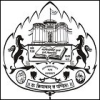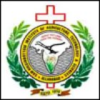How to become a Theologist
Overview, Courses, Exam, Colleges, Pathways, Salary

Overview
Who is Theologist ?
A theologist is a scholar or expert in the field of theology, which studies religious beliefs, practices, and traditions. The term "theologist" is often used interchangeably with "theologian." The role of a theologist involves deep exploration and analysis of religious texts, doctrines, and philosophical concepts related to various religions.
Theologists are concerned with understanding and interpreting the nature of God, the purpose and meaning of life, the existence of a divine being, and the relationship between human beings and the divine. They engage in critical thinking, research, and intellectual inquiry to explore theological questions and seek to develop a comprehensive understanding of religious phenomena.
Theologists may specialize in specific religious traditions, such as Christianity, Islam, Judaism, Hinduism, or Buddhism, or adopt a comparative approach, studying multiple religious traditions to identify common themes and differences. They examine religious scriptures, historical and cultural contexts, theological doctrines, ethical frameworks, and religious rituals to gain insights into various faiths' beliefs, practices, and moral codes.The work of theologists often extends beyond academia. They may contribute to religious leadership, engage in interfaith dialogue, participate in theological debates, and provide guidance and support to individuals seeking spiritual understanding. Theologists play a vital role in shaping religious thought, fostering religious tolerance, and promoting the study of religious traditions for the betterment of society.
Typical day at work
What does Theologist do?
- Preparing and conducting services of public worship and acknowledgments of faith.
- Preparing and delivering sermons, homilies, and special talks, and planning music for services.
- Participating in the social and welfare activities of communities, encouraging people to be aware of their responsibilities, and organizing participation in community projects.
- Conducting classes of religious instruction, and supervising prayer and discussion groups, retreats, and seminars.
- Conducting premarital and family counseling and referring people to professional service agencies where necessary.
- Performing marriages, funerals, and special memorial services according to tradition and ecclesiastical and civil law.
- Visiting members of the community in their homes, hospitals, and other institutions to provide advice and religious comfort.
- Keeping records as required by the church and civil law.
Abilities and Aptitude needed
What are the skills, abilities & aptitude needed to become Theologist?
-
Research and presentation skills
-
Critical thinking skills and the ability to interpret information, formulate questions and solve problems.
-
Organizational and time management skills.
-
Teamwork and communication skills.
-
Empathy and the power to understand people.
-
The ability to work methodically and accurately.
-
A free and clear mind and the ability to care for yourself.
Pathways
How to become an Theologist?
Entrance Exam
Entrance Exam for Theologist ?
Courses
Which course I can pursue?
Best Colleges
Which are the best colleges to attend to become an Theologist?
Industries
Which Industries are open for Theologist?
The expertise of theologists can be valuable in various industries and sectors. While some industries may not directly align with traditional theological roles, the skills and knowledge acquired through theological training can be applied in diverse contexts. Here are several industries that can be open to theologists:
- Education: Theologists can work in educational institutions at various levels, including universities, seminaries, and religious schools. They can teach theology, religious studies, philosophy, ethics, or related subjects. Additionally, they can contribute to curriculum development, research, and academic administration.
- Religious Institutions: Theologists often find opportunities within religious organizations, such as churches, synagogues, mosques, temples, and denominational bodies. They may serve as clergy, religious educators, pastoral counsellors, or administrators, guiding and supporting religious communities.
- Interfaith Dialogue and Advocacy: Theologists can engage in interfaith dialogue initiatives to promote understanding, tolerance, and cooperation among religious groups. They can also contribute to religious freedom, peacebuilding, or social justice organizations.
- Nonprofit and Humanitarian Organizations: Theologists can apply their knowledge and ethics to nonprofit organizations engaged in social services, humanitarian work, or community development. They can address religiously diverse needs, contribute to ethical decision-making, and provide spiritual support to individuals or communities in crisis.
- Publishing and Media: Theological expertise is sought in publishing companies specializing in religious texts, academic journals, or religious literature. Theologists can work as editors, writers, or consultants in producing and disseminating religious and theological knowledge.
- Counselling and Chaplaincy: Theologists with training in pastoral care and counselling can work as chaplains in hospitals, correctional facilities, military organizations, or educational institutions. They provide spiritual support, guidance, and counselling to individuals during challenging times.
- Research and Academia: Theologists can pursue research careers, contribute to theological scholarship, and expand knowledge in the field. They can work as researchers, professors, or scholars in academic institutions, think tanks, or research organizations.
internship
Are there internships available for Theologist?
Internship opportunities for theologists can vary depending on the specific context and focus of the internship. While internships directly targeting the field of theology may be less common compared to other disciplines, there are still possibilities for theologists to gain practical experience and apply their knowledge in related areas. Here are a few potential internship options:
- Religious Organizations: Many religious institutions, such as churches, temples, mosques, and synagogues, offer internships for individuals interested in exploring religious leadership, pastoral care, community engagement, or religious education.
- Interfaith and Nonprofit Organizations: Interning with interfaith organizations or nonprofit groups that focus on social justice, humanitarian work, or community development can provide valuable experience in understanding different religious perspectives, promoting dialogue, and addressing religiously diverse societal issues.
- Academic Institutions: Universities or research centres specialising in religious studies or theology may have internship programs where theologists can assist with research projects, curriculum development, or teaching support.
- Chaplaincy Programs: Hospitals, correctional facilities, military organizations, and educational institutions often have chaplaincy programs that offer internships for individuals pursuing careers in religious counselling, spiritual care, and pastoral ministry.
- Non-Governmental Organizations (NGOs): Some NGOs working in international development, human rights, or peacebuilding may have internships that involve analyzing religious dynamics, engaging with local religious communities, or implementing programs with a religious component.
Career outlook
What does the future look like for Theologist?
The future for theologists holds both opportunities and challenges. On the one hand, studying religion and theology is essential to understanding human culture, beliefs, and values. As society becomes more diverse and interconnected, the need for experts who can navigate and interpret religious complexities will remain relevant.
Theologists can contribute to academia, interfaith dialogue, religious leadership, counselling, and social justice advocacy. They can be crucial in fostering understanding and promoting tolerance among different religious traditions.
However, the field of theology also faces some challenges. Increasing secularization and the rise of non-religious or alternative spiritual beliefs may impact the demand for traditional theological expertise. Moreover, the field of theology may need to adapt to changing social, cultural, and ethical landscapes and emerging technologies that influence religious practices and beliefs.
To thrive in the future, theologists may need to engage in interdisciplinary collaborations, incorporate new methodologies, and embrace innovative approaches to studying and understanding religion. Developing skills in digital communication, cultural sensitivity, and interfaith dialogue can enhance their career prospects and enable them to address contemporary religious and societal issues.






